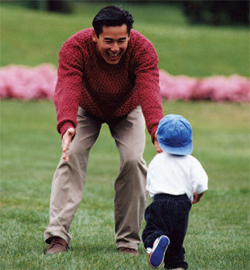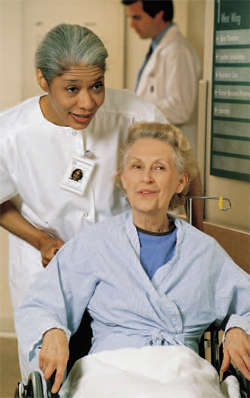Other Factors Increasing Susceptibility to Depression

TIP #7
FIND YOUR BLISS
Along the same lines as spirituality, asking yourself, “Why do I want to get well?” is important.What is the one thing in your life that makes you want to get up in the morning and keep going even when your body wants to rollover and go back to sleep?What images can you think of that make you smile? This can be a loved one, a job, a hobby, or even a higher purpose. Your bliss can be a great motivator when you need an incentive to care for yourself.
In addition to the potential causes of depression already mentioned, other factors can make a person more vulnerable to depressive episodes. By being aware of these situations, you can be extra sensitive to your mood changes during these high risk times and seek treatment if you notice yourself slipping into a depressive episode before it becomes too severe.
Interruption of Routine
Some people find great comfort in sticking to a routine. They may believe that they have more influence over their MS symptoms when they are able to control their sleep, work, and exercise schedule, as well as having the freedom to choose when and what they eat. For these individuals, changing a routine can be a trigger for depression. Examples of changes that commonly affect routine include moving to another location, changing jobs, or traveling.
When someone clings to a routine and is forced to make a change, doing whatever is possible to maintain a normal schedule will help with the adjustment to the new circumstances. For example, if you typically exercise for 30 minutes each day, continue to do this even if circumstances are quite different, such as being on vacation or beginning a new job. Try not to change your activities when in a new situation.
Winter Weather
For many people, the winter season can trigger depression. This phenomenon is known as “seasonal affective disorder,” also referred to as “SAD.” If you recognize a tendency to get depressed in the winter, the following suggestions may be of help (with a doctor’s approval):
- Vacation in a sunny location
- Spend at least a half-hour outdoors
- Use some type of bright visible-spectrum light
- Talk with your doctor about your concerns and learn about additional strategies
Changing Medications
Frequently when changing medications, one’s mood is initially impacted. A few weeks may be needed to adjust to the new chemicals in your body. Informing your doctor of any mood changes when on a new medication is important to the success of a treatment as well as one’s wellbeing.
Other Physical Conditions

TIP #8
HELP OTHERS
Volunteering is a great way to improve self-esteem and combat feelings of worthlessness.
One should not automatically assume that depression is caused by his or her MS. Individuals need to work with their doctor to rule out any other medical or physical issues that may be contributing to depression. Hormone or thyroid problems, changes in blood-sugar levels, and urinary tract or other infections, are among the types of medical conditions aside from MS that can cause depression.
Low Self-Esteem
Many people with chronic illness face challenges to their self-esteem. We may contend with issues such as poor body image, fewer social activities and friends, and the loss of a job or other responsibilities that made us feel worthy in the past. As our abilities change, we may begin to see ourselves as less valuable to both ourselves and others.
Feelings of low self-esteem can lead to feelings of worthlessness and guilt – which can in turn lead to depression. One of the tasks that all people with MS must achieve in order to maintain mental health is the reinvention of a worthy self; despite physical disability.
The responsibility is on each of us to find ways that we can still contribute our talents and skills, regardless of the changes that have taken place within our bodies. Fortunately, we get to choose our self-image. This means that regardless of what our abilities are or how they change, we can consciously decide to adjust our expectations of ourselves and, in turn, adjust what we value about ourselves.
One positive way to combat low self-esteem as well as depression is to volunteer. Research shows that volunteers actually experience a “helper’s high.” Frequently, volunteers report feeling physically, emotionally, and intellectually recharged after doing something for others. In fact, studies show that giving support to others can sometimes be more beneficial than receiving help.
